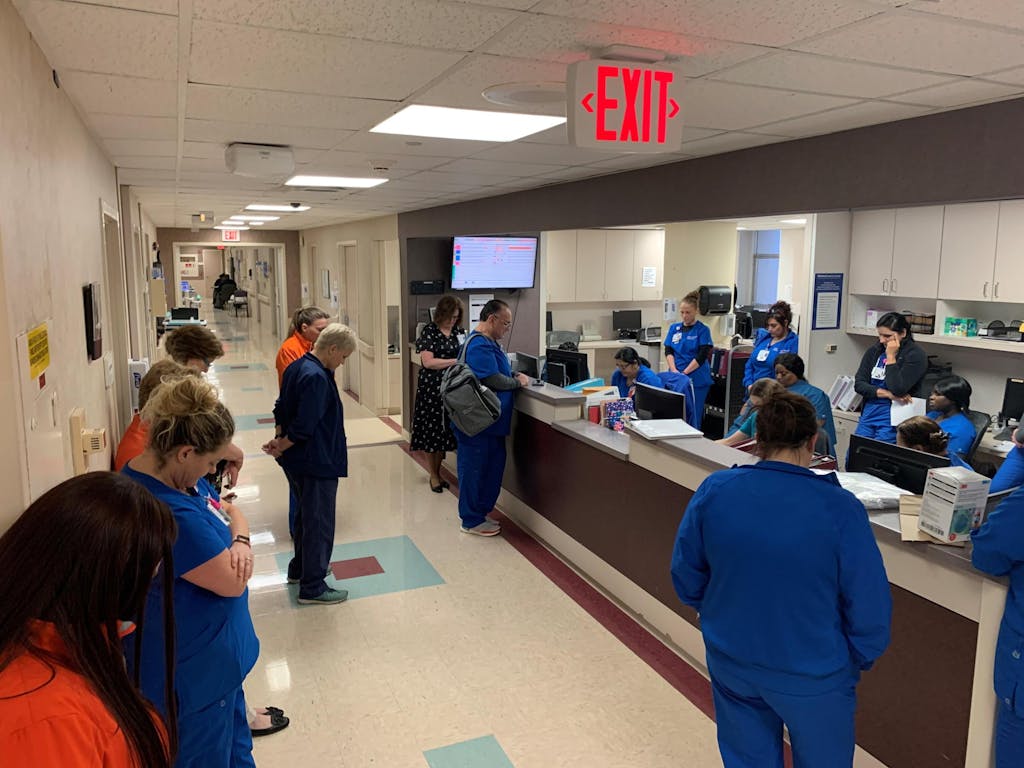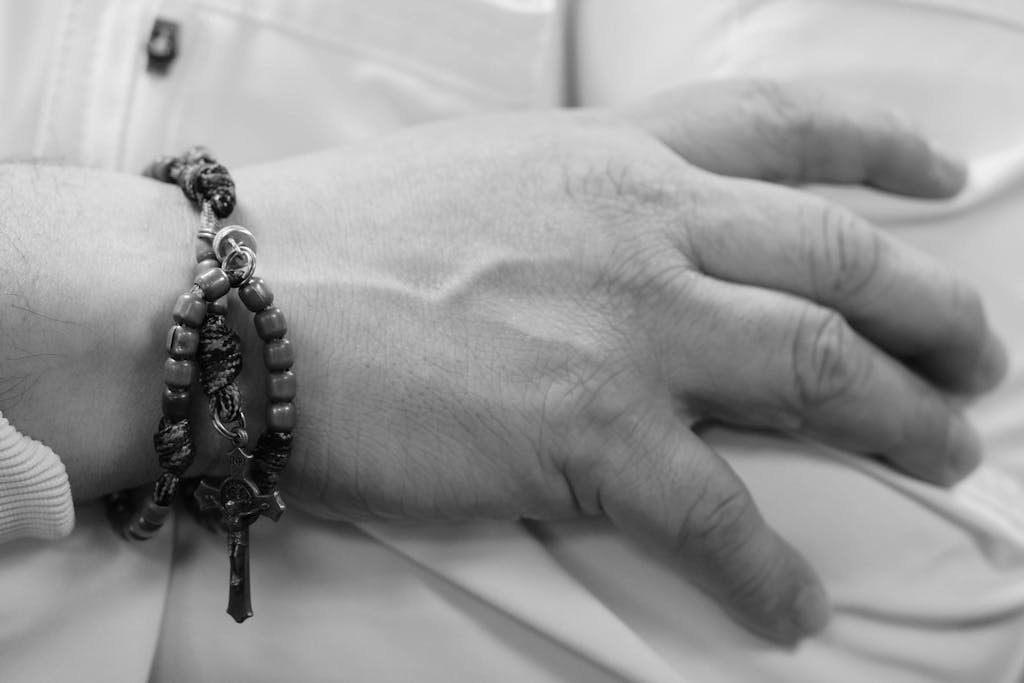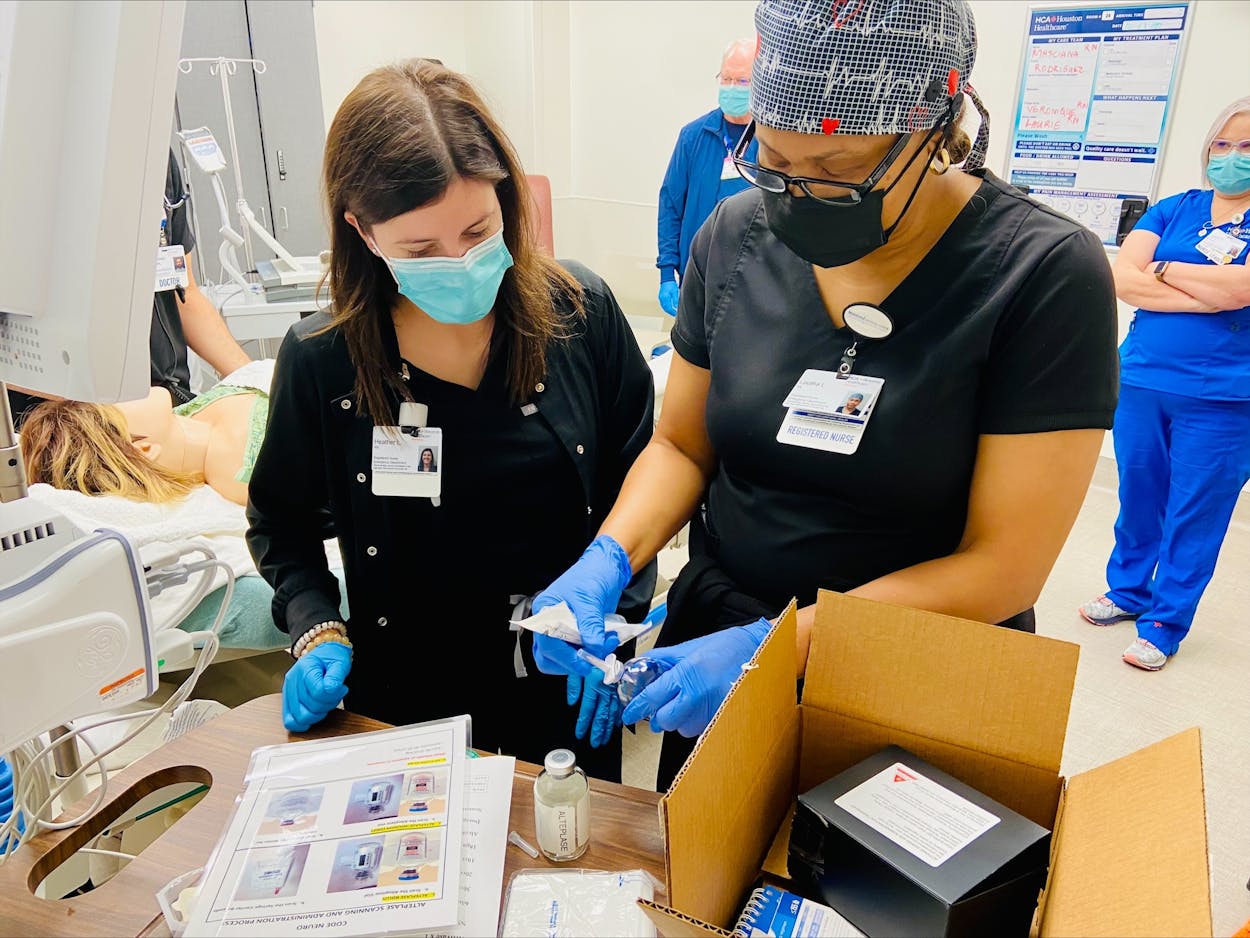Few would disagree that the prolonged battle against COVID-19 has had a staggering impact on the mental health and well-being of healthcare workers, and in particular, on nurses.
In a recent survey of about 10,000 nurses across the country, the American Nurses Foundation found that 75 percent reported feeling “stressed” and 67 percent are “exhausted.” Numbers were particularly high among critical care nurses and younger nurses, with 51 percent of those ages 25 to 34 feeling “not emotionally healthy.”
At HCA Houston Healthcare, supporting the well-being of its nurses has always been paramount, even when not in the time of crisis. But as nurses continue to cope with the extreme pressures and difficulties of their jobs, HCA Houston Healthcare is working harder than ever to prioritize—and destigmatize—their mental health needs through new initiatives, resources, and tools.
Building Resiliency
HCA Houston Healthcare employs nearly 7,000 registered nurses and is dedicated to supporting the mental health of every single one. Through a unique service called HCA Nurse Care, for example, hospital-based nurses have free and unlimited confidential phone access to a counselor, 24/7. The hotline was implemented shortly after COVID-19 began and was designed to help nurses manage anxiety, balance work and life responsibilities, and answer common nurse questions.
Last year, Nurse Care received more than 20,000 calls across the enterprise. HCA Healthcare’s Gulf Coast Division, which includes Houston and South Texas hospitals, made most of them.
“That says a lot,” says Douglas Goodman, regional vice president of human resources at HCA Houston Healthcare. “One, it’s unfortunate, but two, it also shows that we did a great job of communicating to our colleagues in support of their additional needs.”
Among many other resources, HCA Houston Healthcare also offers free behavioral health services through its employee assistance program. This is a confidential, short-term counseling and referral service available to all employees and members of their household.
It’s resources like these that have helped Angel Romero, Jr., MCIS, BSN, RN, push through some of his most trying days at HCA Houston Healthcare Mainland—one of the first hospitals within the HCA Houston Healthcare system to be significantly impacted by COVID-19.
“There have been a number of times when I used the [Nurse Care] hotline,” says Romero, though the first has stayed with him.
It was during the earlier days of the pandemic, when Houston was on lockdown and visitors were not allowed at the bedside. He was treating one of the youngest COVID-19 patients to be admitted at the hospital at the time—a Spanish speaking woman and mother whose loved ones lived across the Mexico border. Romero, a bilingual speaker, translated for her physician and interacted with her family over the phone. Delivering difficult news and hearing her family’s grief started to take a toll on him. That’s when he remembered the Nurse Care hotline.
“To have someone on the other end to just listen to me allowed me to go home to my family in a much better state,” says Romero. “From that moment on, I’ve been using the tools that HCA Healthcare provide. They have been so critical to a lot of us at the frontlines, and allowed us to provide more care and more compassion.”

Coping and Overcoming
Burnout is a term most commonly used when describing exhaustion. But what some nurses may be feeling, experts say, is actually “compassion fatigue.” In nursing, compassion fatigue occurs when a nurse starts to feel less empathy for his or her patients. It’s a consequence of caring too much, for too long.
Part of HCA Houston Healthcare’s strategy for combating compassion fatigue—as well as burnout—is to proactively identify the signs and symptoms. Some of these signs include increased irritability with patients, physical issues such as headaches and stomach problems, and loss of self-worth.
“This time has been so difficult. The pandemic has shortened the fuse,” says Vanessa Fawn Colburn, a clinical therapist at Corpus Christi Medical Center Bayview. “So many of our nursing staff have said, ‘I give everything I can, my heart is breaking all the time.’ Those are some of the comments that get our attention for compassion fatigue symptoms.”
Corpus Christi Medical Center Bayview is part of the HCA Healthcare Gulf Coast Division family of hospitals and is the largest facility for behavioral health services in South Texas. Colburn is committed to reducing the stigma surrounding mental health and often goes above and beyond her day job of facilitating the hospital’s women intensive outpatient service program to support her colleagues’ mental well-being.
Most recently, she hosted a series of presentations on how to combat compassion fatigue for the Gulf Coast Division’s Mental Health and Wellness Colleague Network. The network is an employee-led group that serves to continually improve the mental well-being of its members through education, videos, and presentations. It was launched in early 2021 as a response to the pandemic and is open to all Division employees.
“When we create spaces for nurses to express themselves, do some of this internal housekeeping, and clear out some of that emotional clutter with support, it helps nurses be even more available to their patients,” says Colburn.
As of now, the network has about 400 members. Colburn would like for membership to grow, as well as see more nurses seek care when they need it.
“We’re offering the help,” Colburn says. “It’s just simply normalizing it for people so that they’re more willing to access it.”

Prevention and Early Intervention
To help address and prevent any short- or long-term effects of compassion fatigue, Colburn encourages weaving simple self-care into everyday work life. Below are some techniques she recommends for those who may be struggling in silence:
- Find someone to talk to.
- Take your lunch break.
- Sit in the car for a moment and listen to your favorite music before going back on the unit floor.
- Spend a few extra seconds washing your hands. It provides bilateral stimulation to your brain, which can help reduce stress and anxiety.
- Practice breathing exercises.
- Understand that external circumstances do not determine your self-worth.
If challenges are leading to suicidal thoughts, call the National Suicide Prevention Lifeline at 1-800-273-8255, or contact the Crisis Text Line by texting HOME to 741741. In an immediate emergency, call 9-1-1.






